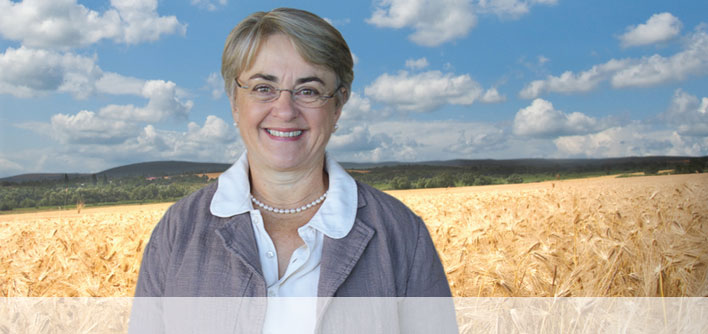June 2015
Being able to produce food from the land is a very old occupation and one that must always be highly regarded. The whole world depends on farmers for food. This year we have been made aware again of the high risks involved in crop farming – large areas of the Free State and North West experienced a devastating drought and they will suffer great financial losses (as they did in 2012). Unfortunately farmers were not able to take out multi-peril insurance in these areas and the reason for this is that the insurance companies view these areas to be a bad risk for them – no insurance company wants to lose money and if they will not insure you then you should know that the risk is very high.
This brings me to the point of borrowing money. If you plant a crop using your own money and you do not get a harvest, you have lost your own money. However, if you have borrowed money and not harvested then you have nothing AND you have debt which will be interest-bearing. Somehow in our modern society, we are all eager to borrow money from other people and not invest our own money. We have seen this with many farmers who want to take all the profit from their crops to use for themselves and then want to borrow the full inputs costs. If you are not prepared to invest your own money in a business then we can assume that you are worried about the risks involved. This should make you even more careful not to borrow money from someone else for the same purpose.
Many farmers are not keen to start small – they want to borrow money to plant all the land. If it is a good season then planting a large area can be very rewarding. However, if it is a bad season then you will have lost a lot of money over a large area – this could even mean the end of your farming operations. We suggest to farmers that you should start on a smaller area so as to reduce the risk of loss while you are learning to be a commercial farmer.
Another way of reducing your risk is to have a livestock component in your business. This does not mean that we are encouraging you to keep cattle, sheep, pigs, poultry, dairy, and orchard etc – the more enterprises you have the better your management has to be. Many crop farmers keep beef cattle which graze on the veld during the summer and on the crop residue during the winter months. Grain yields can be very high in a good year and it will be like “hitting the jackpot”. A bad year however can mean financial ruin. With livestock as an additional enterprise, you will not ever “hit the jackpot”, but you will seldom have a complete disaster with the stock. The stock does add a stabilising factor to the cropping and in poor years, at least your livestock will have something to eat (remember that when the crops are poor then the veld usually has not grown well due to the poor rainfall). If you have crop residue then at least you will be able to carry the livestock through the winter months.
As farmers, we are optimists and we need to lift up our heads after a bad season and plant again. The man that will never harvest is the man who has not planted. Let us make plans, use good modern production practices and plan to plant again in the spring – we have a duty to feed the world and we will continue to do our best! Good luck and I hope that we get good rains during the winter that will fill our soil profile and enable us to hope for a good crop next year.
Publication: June 2015
Section: Pula/Imvula